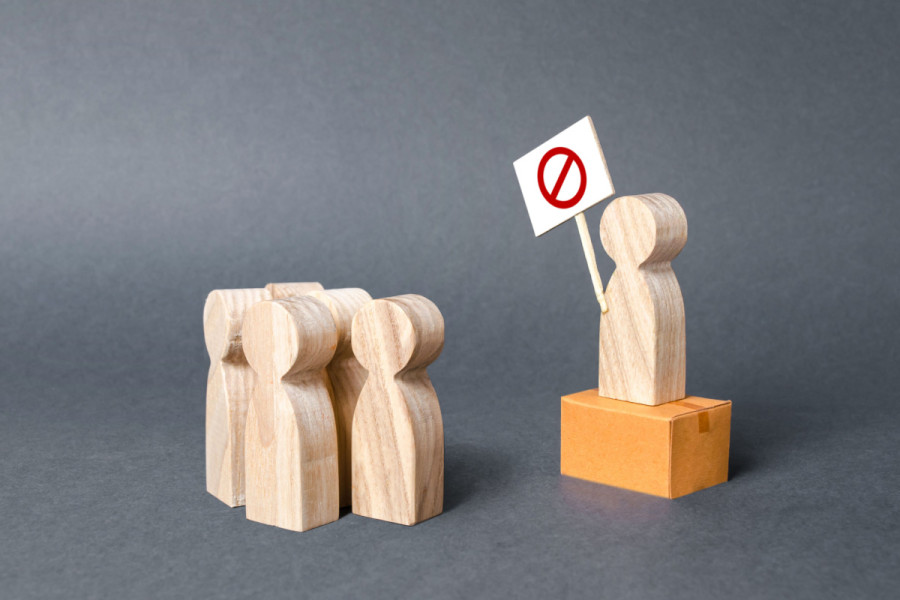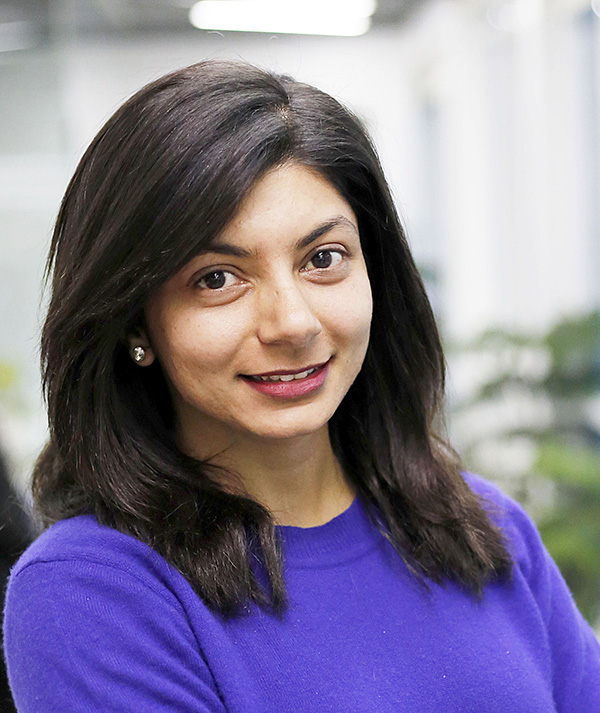Columns
Insulating sentiments from hurt
We must learn to become more tolerant and inclusive to strengthen our democracy.
Avasna Pandey
In 2017, as the parliamentary elections drew closer, Sher Bahadur Deuba warned people that if they voted the communists to power, they would be forbidden from crying. Using communism as a boogeyman, he tried to scare the citizenry, urging them to vote for the Congress party, projecting it as a democratic party allowing people to exercise their agency.
Fast forward to 2022. Deuba is now prime minister, and in his reign, you cannot even laugh—or make others laugh—forget about crying. Apoorva Kshitiz spent two weeks in custody for performing a sketch on Newa culture as the Deuba administration was too eager to incarcerate the stand-up comedian based on a frivolous complaint. A security guard working at the VFS visa centre in Thamel, who partially shares the prime minister’s name—Sher Jung Gurung—spent a few days for asking a sitting minister, Jeevan Ram Shrestha, to stand in a queue. Not long ago, folk singer Prakash Saput was forced to withdraw his song, “Pir”, from YouTube and upload a truncated version for “offending” a political party that wants to erase its dubious past from public memory.
Hurt sentiments
A common theme runs across these incidents—that of rising intolerance and abuse of power. It is becoming difficult to speak or act without consequences. These episodes point to intolerance and misuse of power, which should worry us all, for we must recover our sense of humour and responsibilities if our society is to thrive.
Humour cannot be dangerous, but what we choose to do with it can be. Oftentimes, a comic goes on stage, exposing their own life stories to transform an anecdote into a joke. By connecting many contemporary incidents, images, institutions or practices, jokes serve as means of understanding and belonging within certain social relationships. But when people and authorities don't see it that way, humour becomes something to be criminalised. And such a mentality takes sociability away from society. Comedians are not a threat, but those who try to stop them are, for it impinges directly on our right to expression, a critical feature of democracy.
While we love to claim ourselves as a democratic society, we see a clear contradiction here. We share a preference for democracy as a form of national politics, but are reluctant to practise democracy with those who critique us. This kind of intolerance makes democratic societies vulnerable, for democratic norms don't seem to be rooted firmly.
Periodic elections form only one of the pillars of democracy. Other cardinal pillars, such as freedom of expression and the rule of law, are just as essential to lend democratic societies legitimacy. If we prioritise upholding elections and let other norms deteriorate, we will remain a psephocracy more than a democracy. Psephocracy is a government of elected representatives, but participation is often limited to the act of voting. Leaders run from one election to another with electoral objectives governing their decisions. Whereas, in a democracy, participation holds a broader meaning, and leaders seek to engage in the politics of transformation.
Nepali society continues to evolve, and like all democracies that undeniably contain the seeds of its own recovery, our community has been quite resilient. Norms and institutions are on the wane, but should someone take that to an extreme, the Nepali polity responds strongly. We saw these instances when former king Gyanendra Shah tried to usurp power. We saw it more recently, when former prime minister KP Sharma Oli dissolved a democratically elected Parliament twice.
In these cases, the leaders and the citizens alike were pushed to the edge. But barring such extreme situations, our democracy feels like a psephocracy again. The crisis of governability continues to plague the country; corruption is at an all-time high and service delivery is at an all-time low. Intolerance is growing, and elected representatives seem inebriated with power.
Tourism Minister Shrestha's confrontation with the security guard on duty is a case in point. When stopped from breaking the queue at the visa centre, Shrestha used the state machinery to have the guard arrested on the charge of “indecent behaviour” although the ministry had no evidence to back up his allegations. The pettiness of the leader was evident in his bullying of a subordinate professional who was fulfilling his duty.
Not long ago, Prem Ale, former tourism minister, notorious for his public remarks, abused Yuvraj Adhikari, executive chairman of Nepal Airlines Corporation, using obscene words repeatedly on the phone for not following his instructions. Examples abound. The abuse of power to nurse bruised egos is becoming a favourite sport of the powerful.
Making democracy work
Democracies do not let elected representatives get ahead of themselves simply because their inspiration comes from ideas of equality and the common pursuit of the general interest. It provides an environment for the protection and effective realisation of rights and limits of one's power.
Intolerance and centralisation of power have never served democratic societies. If anything, they enfeeble the state when it comes to achieving its socio-economic goals. Our silence in such matters makes way for unscrupulous leaders, leading to the erosion of norms and institutions and the worsening of democracy.
Why can't citizens make jokes when the governments have continued to make a joke out of the people? And why shouldn't lawmakers follow the rules when they are entrusted to make laws for us? Our idea of democracy is one in which citizens are equal, are engaged politically but are tolerant of diverse opinions. If that image does not ring with the larger citizenry, we must find a different name for the society we currently inhabit.




 8.79°C Kathmandu
8.79°C Kathmandu















